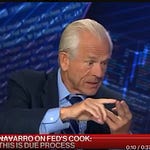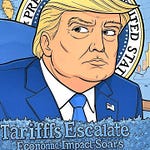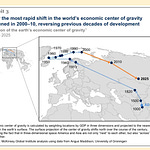A version of this essay was published by firstpost.com at https://www.firstpost.com/opinion/shadow-warrior-crown-sceptre-and-the-saga-of-dharmapuri-12647632.html
In Malayalam, the terms are “kireedom and chenkol”, that is, crown and scepter, signifying the powerful symbols of the State. He or she who holds these is deemed to be the ruler, ruling with the full authority of the office, and the full approval of the subjects. The words chenkol in Malayalam and ‘sengol’ in Tamil are cognate, eg. Chenkotta (red fort) in Malayalam is Sengottai in Tamil.
The scepter is an important marker of kingship, so much so that during imperial times, Britain was referred to as the ‘sceptr’d isle’, that is, the unquestioned ruler of its far flung empire.
There is of course the third symbol, the throne, or ‘simhasanam’. During the recent investiture of the British king, I am sure all three of these were on full display. For some reason, the throne seems less important in Indian lore than the other two, but in a wicked pun, the great fabulist O V Vijayan in his savage satire “The Saga of Dharmapuri” equated the throne with a European toilet, as in a slang American expression for the erstwhile ‘thunder box’.
The Chola ‘sengol’ from Tamil Nadu was a sacred symbol included in a “vesting ceremony accompanied by a recital of 11 verses from the Thevaram text invoking the blessings of Shiva for the ruler” in 1947, according to S Gurumurthy in “How the Sengol embodied India’s freedom and why it was forgotten and lost” on republicworld.com. Not only was the sengol forgotten, the Cholas, and their great maritime empire that extended all the way to Indonesia, were erased.
In fact, all of South Indian history, including the fabled Vijayanagar Empire, the samurai-like kalaripayat warriors of the west coast and Tulunadu, Telugu patriots like Alluri Sitarama Raju, Travancore’s Marthanda Varma who defeated the Dutch at Colachel in 1749, and Travancore’s Chempakaraman Pillai of the INA who coined the term ‘Jai Hind’, was wiped out from the pages of textbooks. In their place, a weird pabulum of make-believe was installed.
The sacred ‘sengol’ denoting “virtuous and ethical rule” per Gurumurthy was deemed to be a personal gift, a gold walking stick given to Jawaharlal Nehru, which once again shows how a personality cult was relentlessly built up that would make Mao and Kim Il Sung green with envy. “L’etat, c’est moi” (The State, it is I), said Louis XIV, the Sun King of France. Well, we know what happened to his descendants: the guillotine. Indians, being more gentle, have not quite done the same thing. Or at least done so only metaphorically.
Which reminds me, why is/was Nehru called ‘Pandit Nehru’? Who certified him? What was he a pundit in? Did he pass some pundit exam? Ah, it was just part of the personality cult. I don’t see other Kashmiri Hindus going around calling themselves Pandit: they use their family names, so what’s special about these people?
Oh well, I guess I answered my own question. According to the cult, Nehrus were the hereditary rulers of India, and so it was only natural that the kingship would pass from the British to Nehru. There is only one slight problem. Again according to O V Vijayan in The Path of the Prophet, the Nehrus were not hereditary feudal lords, but ferrymen on the river Neher, “they who came from somewhere”, and had taken the name of the river as their surname. Jawaharlal’s grandfather Ganga Dhar was a kotwal in a Delhi police station. A Ghosh had some more startling information about this man, who was photographed in a full Pathan outfit, but I shall let that pass.
I made an attempt at deconstructing the Nehru myth in my 1999 Rediff.com essay Let us now praise famous men wherein I quote at length the relevant passage from Vijayan. In my considered opinion, Nehru was an almost unmitigated disaster for India: he thought India was his personal fiefdom, and he was entitled to dispense imperial largesse. He gave away all sorts of things (that didn’t belong to him in the first place):
Treaty rights in Tibet inherited from the British given away in exchange for nothing
The right of independent Tibet to exist was erased, as he colluded with Chinese road-building on the Indo-Tibetan border: Chinese troops were fed with Indian rice!
Pakistan-Occupied-Kashmir given away by taking the issue to the hostile UN instead of allowing the Indian Army to cleanse the area of invading Pakistani tribals
UN Security Council seat, offered by both the US and Russia (yes, I can quote chapter and verse on this from Nehru’s collected writings), given away to China
Coco Islands given away to Burma, which is now allowing China to build a naval base there
In addition, Nehru, in his own words in this video, thought that throughout history South India was a separate country. I get it, he must have taken his pundit exam along with Romila Thapar in ancient Indian history!
There is good reason to think of Jawaharlal Nehru as not quite getting the full picture (Chou En Lai allegedly referred to him, rather rudely, as a ‘useful idiot’).
Then what does that make his acolytes? That was the question Vijayan asked in “Dharmapuri”, which opens with the dramatic statement: “Prajapati wanted to shit”, in crude Malayalam. “It was a little off the usual time that day, so the assembled dignitaries were a little disturbed when the Army Chief blew the conch signifying that the event was at hand. It was only the late afternoon. Normally Prajapati did his thing at dawn and dusk, to the accompaniment of Dharmapuri’s national song.” [See the photograph of Page 1 of the book in Malayalam]
Prajapati is seated on his ‘throne’, a toilet. That was important, because whatever Prajapati expelled into the toilet was eagerly consumed by his courtiers.
This Brechtian tale is hard to read: it invokes bibhatsa in the reader, creating both alienation and catharsis. Here’s a relevant bit: “Whoever became anybody in the kingdom, in industry, or in politics, had done so by regularly eating Prajapati’s shit. Mothers would pray that their children would have an opportunity to consume those perfumed feces”.
That’s a gross way of putting it, but there’s an element of truth: the Dynasty demanded utter loyalty. Meanwhile, India’s economy kept declining steadily in comparison to the rest of the world, until there was a bit of a turnaround in 1991, and accelerating growth in the 2010s.
After all these years of living dangerously, India is now inching ahead. With economic growth, it is normal to think of tradition, culture and heritage.
It is only fitting, then, that the Prime Minister took part it an investiture ceremony, with several Tamil Nadu matha-adhipathis in attendance. With native Tamil and Finance Minister Nirmala Sitharaman taking a visible role, the government has declared its intent to nip any sub-nationalism (the US ambassador’s obsession) in the bud. It is an emphatic re-assertion of pan-Indian nationalism, necessary in these times of increasingly complex geopolitics.
It is time to decisively throw off the shibboleths of the immediate post-independence period. The Chola-style sengol is being restored to its rightful place as a symbol of the resurgent Indian State, as it was intended to be in the first place, not, absurdly, some guy’s walking stick.
Errata: It was pointed out by Professor Subhash Kak that Vijayalakshmi Pandit was married to a man with the surname Pandit. The error is regretted.
1117 words, 25 May 2023, 1137 words, updated 27 May 2023, 1214 words, updated 28 May 2023













